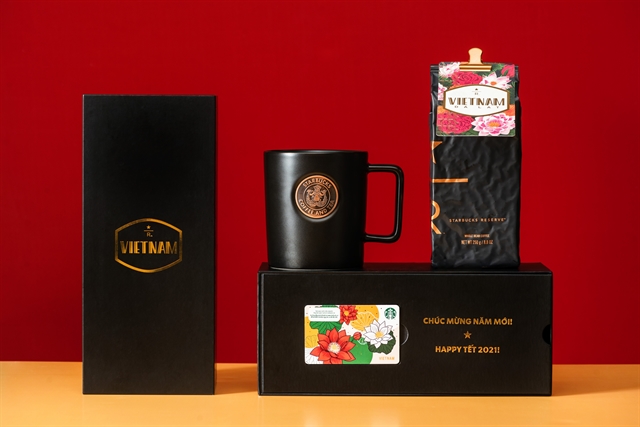US coffee company Starbucks Vietnam on Monday in HCM City announced that it will continue to expand its business by opening more stores.

US coffee company Starbucks Vietnam on Monday in HCM City announced that it will continue to expand its business by opening more stores.
A representative of the company did not disclose the exact number of the stores, but said that they would continue to focus on Ha Noi and HCM City and resume their plan of expanding in other cities, which they could not do this year due to the COVID-19 pandemic.
Starbucks said this year they have opened six new stores despite difficulties caused by the pandemic.
In another development, Starbucks Vietnam welcomed back Starbucks Reserve Vietnam Da Lat.
“Not every year we can bring back Starbucks Reserve Vietnam Da Lat. It depends on the crop quality of the year. Starbucks Reserve coffee is rare, exquisite and sourced in small-lots. This year, Starbucks Reserve Vietnam Da Lat has the aroma of bay leaf and notes of toffee and cocoa, with herbal accents. We are so grateful and proud to have Starbucks Reserve Vietnam Da lat in Viet Nam market," said Patricia Marques, general manager of Starbucks Vietnam.
Starting on Tuesday, Starbucks Reserve Vietnam Da Lat coffee will be available at all Starbucks stores in Viet Nam. In celebration of the festive season and Lunar New Year holiday, Starbucks Vietnam also is introducing a limited quantity of Vietnam Da Lat gift sets, which include a Starbucks Reserve Vietnam Da Lat bag, a mug (12oz or 463ml), and a Starbucks Vietnam exclusive card.
From the cool and mist-shrouded pine forests of Viet Nam’s Central Highlands comes an exceptional coffee that the company is proud to offer again this year.
Anchored by the city of Da Lat – nicknamed “The City of Eternal Spring” – the serene environment of Lam Dong Province offers an escape from the heat and has ideal conditions for the cultivation of high-quality arabica beans.
Coffee grows easily in this beautiful and remote region, but transportation is significantly more difficult. Farmers typically rely on small motorbikes to drive large loads of freshly picked coffee cherries to the buying stations. Their dedication culminates in a coffee every bit as distinctive as the land from which it came. — VNS





